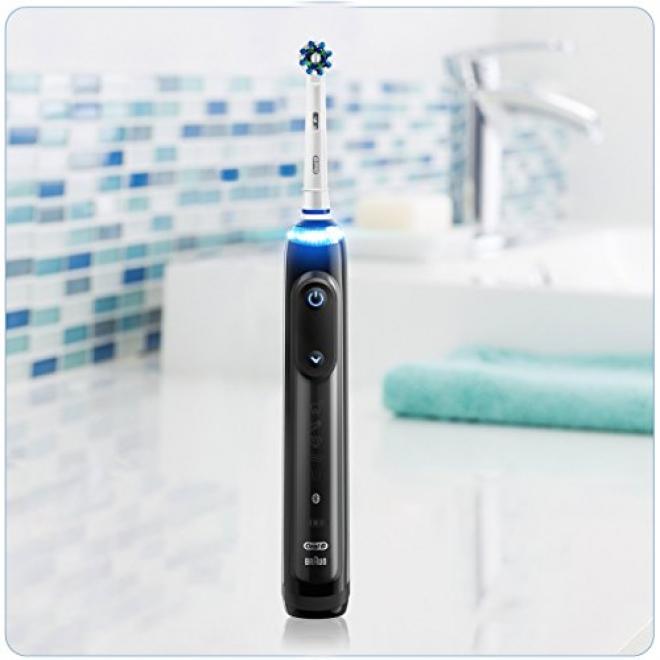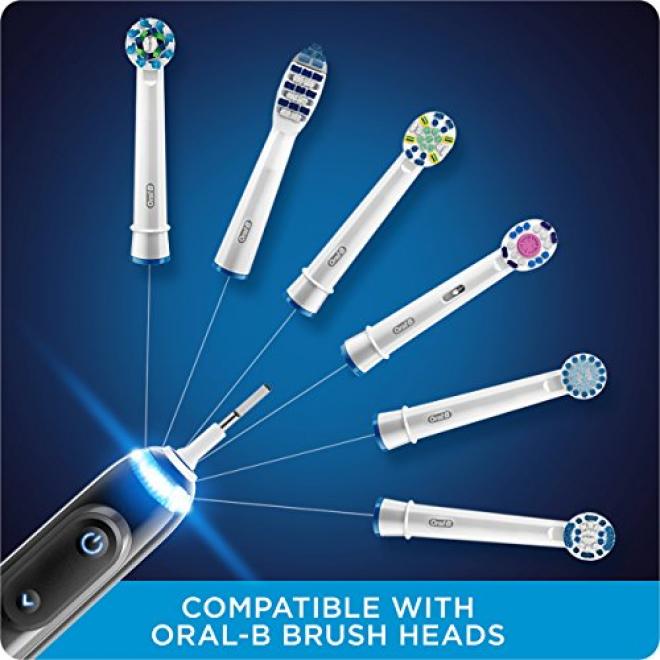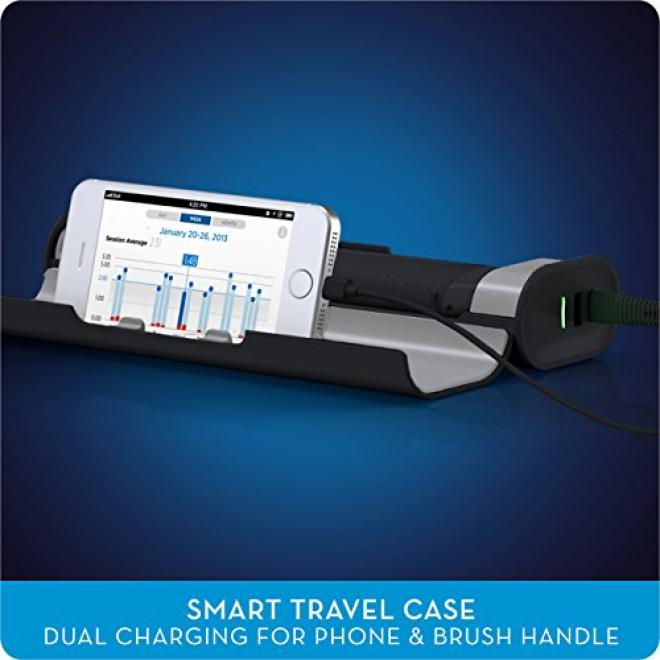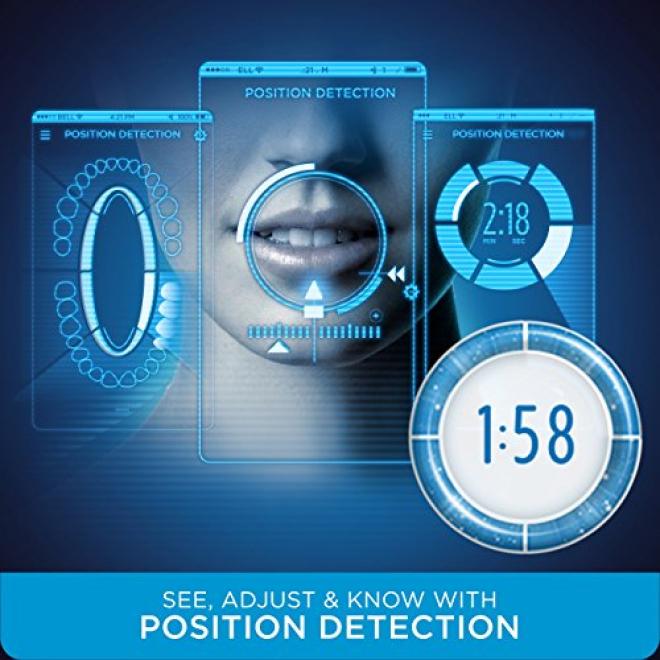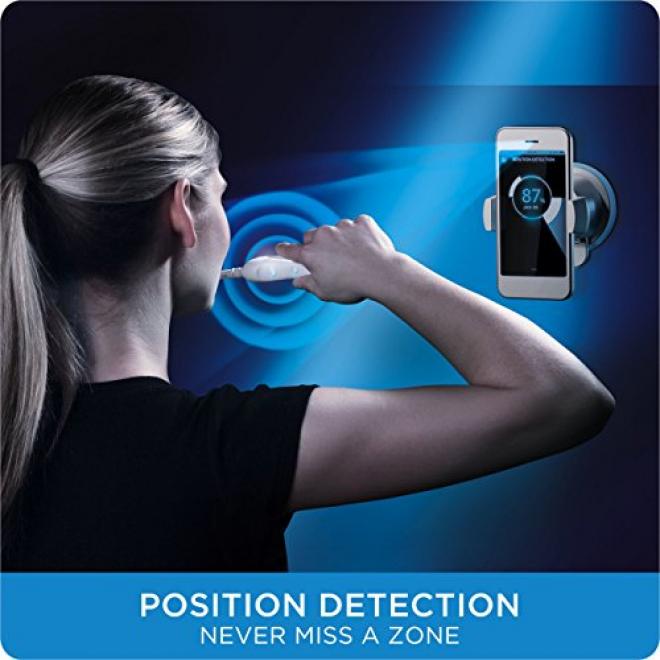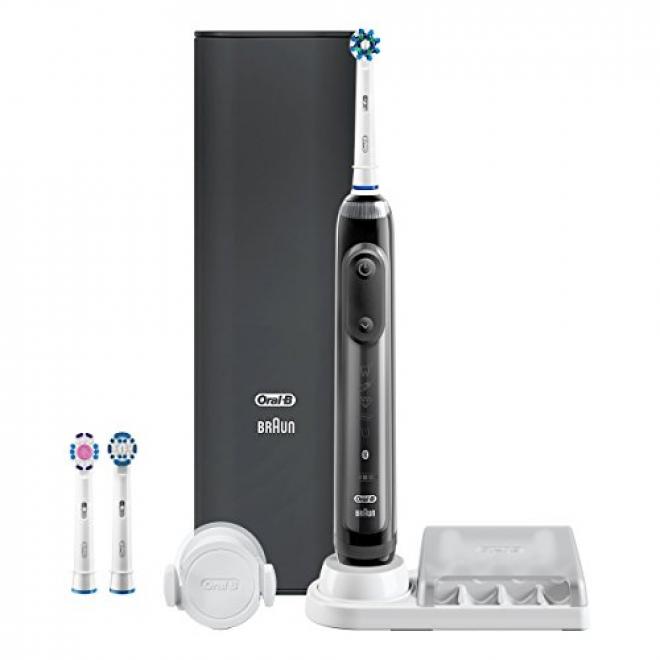原文: I've used regular toothbrushes my entire life, but at the recommendation of my new dentist, I looked into an electric tooth brush. I asked my dentist if she had a recommendation, but she more or less said that any electric toothbrush will likely be better than a manual toothbrush, but that she pers
onally uses a Sonicare tooth brush that's a few years old. With that in mind, down the rabbit hole if internet researching I went.
I wanted something with a pressure sensor. I like to lift heavy things at the gym and have a tendency to strong arm everything, including brushing my teeth which apparently may have contributed to some gum erosion. The current top model Sonicare (DiamondClean Platinum) does not have a pressure sensor. However, the FlexCare Platinum Connected does come with a pressure sensor. Oral-B models from the 1000 up have a pressure sensor. Based on price, I elected to compare the Sonicare FlexCare Platinum Connected to the current top model Oral-B, Genius Pro 8000.
First, I asked two friends who are dentists what they prefer. One friend strongly recommended the Sonicare FlexCare+, stating that the top of the line models are not any better. The other provided a similar recommendation to my dentist - either one will be a huge improvement over a manual brush. So slight tilt to the Sonicare at this point. Very slight because not much detail was provided as to why the Sonicare was better. Just a "trust me, get this" endorsement.
Next I searched for any studies comparing rotary (Oral-B) to oscillating (Sonicare) power brush heads. I won't post links to all the scientific studies I read, but the are quite a few on the National Center for Biotechnology Information (ncbi.nlm.nih.gov) site. The more recent ones favor rotary brush heads.
Point Oral-B.
Then I compared features -
Pressure Sensor: Oral-B has visible and tactile feedback (flashes light and pulses motor). Sonicare only provides tactile feedback (vibrates handle).
Strokes/movements per minute: Oral-B (48,800 movements/min), Sonicare (31,000 strokes/min, 62,000 movements/min)
Connected App: Both have some form of app that helps you hit all areas of your mouth consistently
Brush Heads: Oral-B has 5 available brush heads and comes with three (cross action, whitening, and sensitive brush heads), Sonicare has 5 available brush heads and comes with two (AdaptiveClean, InterCare)
Battery Life: Sonicare claims up to 2 weeks, Oral-B claims up to 12 days
Point Oral-B.
I then looked up subjective factors. In particular, I was interested in comparing noise levels. I looked up videos on Youtube, and there's no question that the Sonicare has a more pleasant buzzing sound vs. the more mechanical sound of the Oral-B.
Point Sonicare.
I considered travel convenience since I am on the move a lot. Both come with travel cases. Oral-B is a nicer looking black case. The Oral-B is made by Braun, and the travel charger uses the same kind of plug as my Braun Series 9.
Point Oral-B.
Finally, cost. Oral-B is cheaper up front by about $50 including all applicable discounts and manufacturer coupons at present. The Oral-B brush heads are also cheaper.
Point Oral-B.
So, I bought the Oral-B. I have used the app, and while it has some annoyances, the ability to track my toothbrushing habits is cool. I am a tech nerd after all. Reminders for flossing and mouthwash are on by default, but you can disable them. A suction mount to hold your phone on your bathroom mirror is included. I also like that you can setup the app to automatically order replacement brush heads through Amazon when the one you're using at the end of its life. I found the overall noise to be more than tolerable, but there's also usually music playing in my home no matter the hour.
Of course, the big question is, how well does it clean teeth? Very well apparently! My teeth were noticeably whiter after 1 week using only the standard cross action head. I will likely try the whitening head at some point in accordance with the whitening program in the app. The brush head has visible movement, in contrast with the Sonicare which has more movements, but they are smaller movements, and only linear movements.
I'm very pleased with my purchase. Unless you're averse to the sound the Oral-B makes, it's handily the best brush on the market right now.
显示更多>>
译文: 我一辈子都用的是普通的牙刷,但在我的新牙医的推荐下,我想试一下电动牙刷。我问我的牙医是否有推荐的产品,但是她多多少少说过电动牙刷可能比手动牙刷好,她个人使用的是几年前的Sonicare牙刷。考虑到这一点,我开始在互联网上仔细的研究。
我想用压力传感器。我喜欢在健身房举起沉重的东西,并倾向于可以强壮手臂,包括刷牙,这显然可能导致一些胶质的侵蚀。目前的顶级型号Sonicare(DiamondClean Platinum)没有压力传感器。但是,FlexCare Platinum Connected确实附带了一个压力传感器。 Oral-B型号从1000版本起就有一个压力传感器。根据价格,我选择把Sonicare FlexCare白金和当前顶级模型Oral-B,Genius Pro 8000相比较。
首先,我问两个牙医朋友他们更喜欢什么。有一位朋友强烈推荐Sonicare FlexCare +,声称另一个顶级模型的型号没有任何改进。另一个提供了一个类似的建议,我的牙医 倾向于相比于手动刷子的巨大改善。所以在这点上对Sonicare略有倾斜。非常不足取信的意见,因为提供更多关于为什么Sonicare更好。只是一个“相信我,买这个”的认可。
接下来我搜索了关于旋转(口腔B)和摆动(Sonicare)动力刷头比较的研究。我不会在这里张贴所有我读过的科学研究的链接,但在国家生物技术信息中心(ncbi.nlm.nih.gov)网站上有很多。最近的都更喜欢旋转刷头。
Oral-B更好。
然后我比较了功能 -
压力传感器:Oral-B具有可见性和触觉反馈(闪光灯和脉冲电机)。 Sonicare只提供触觉反馈(振动手柄)。
每分钟冲程/动作:Oral-B(48,800次/分钟),Sonicare(31,000次/分钟,62,000次/分钟)
连接的应用程序:都有一些应用程序,可以帮助你一直刷完你嘴的所有地方
刷头:Oral-B有5个可用的刷头,并有三个(交叉动作,美白,敏感的刷头),Sonicare有5个可用的刷头,并配有两个(AdaptiveClean,InterCare)
电池寿命:Sonicare可以长达2周,Oral-B可以长达12天
Oral-B更好。
然后我查了主观因素。我特别感兴趣的是比较噪音水平。我在Youtube上查找了视频,毫无疑问,Sonicare与Oral-B的机械化声音相比,有更好的嗡嗡声。
Sonicare更好。
由于我在旅途中的时间很多,所以我考虑过旅行是否方便。都带有旅行箱。Oral-B是一个更好看的黑色盒子。 Oral-B由Braun制造,旅行充电器使用与Braun Series 9相同的插头。
Oral-B更好。
最后是成本。Oral-B便宜了约50美元,目前包括所有适用的折扣和制造商优惠券。Oral-B刷头也便宜。
Oral-B更好。
所以,我买了Oral-B。我已经使用了这个了,虽然它有一些烦恼,跟踪我的刷牙习惯的能力是很酷的。毕竟我是一个技术呆子。牙线和漱口水的提醒默认是打开的,但你可以禁用它们。包括将您的手机放在浴室镜子的吸盘上。我也喜欢,你可以设置应用程序通过亚马逊自动订购更换刷头,在你一直使用它的时候。我发现整体的噪音超过了可以忍受的程度,但是无论什么时候,我的家里通常都会有音乐播放。
当然,最大的问题是,它清洁牙齿的效果有多好?很明显!只使用标准的十字头,我的牙齿在1周后明显变白。根据应用程序中的美白程序,我可能会在某个时候开始尝试美白头。刷头具有可见的运动,与具有更多运动的Sonicare相反,但它们是较小型的运动,并且只有线性运动。
我对我的购买感到非常满意。除非你不喜欢Oral-B的声音,否则它现在是市场上最好的牙刷。

